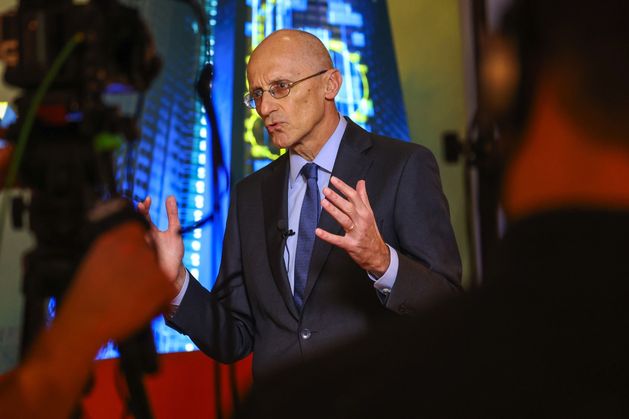Process to assess candidates suitability for top finance roles seen as ‘opaque’ and ‘confrontational’
Central Bank Governor Makhlouf said he accepted all of the 12 recommendations set out in the report.
“I accept all of the recommendations in the review. They will help us to ensure that the F&P regime continues to perform its key role into the future.”
There are clearly improvements the bank can make in the way it manages applications and determined judgements on them, he said.
The report, which follows a review by one of Europe’s most senior central bankers Andrea Enria, was commissioned In March after the fitness and probity approval process was subject to a highly critical judgment by the Irish Financial Services Appeals Tribunal (IFSAT).
The judgment found that the Central Bank’s process in a case assessed after an appeal “fell below the standard of constitutional fairness.”
That triggered Central Bank Governor Gabriel Makhlouf to commission Andrea Enria’s independent review.
Mr Enria has now made 12 recommendations to shake up the regime, with a strong focus on refining the assessment process.
A key recommendation is to establish a single unit within the Central Bank to manage fitness and probity assessments and to ensure that work is distinct from the bank’s enforcement arm which investigates potential wrongdoing.
The report’s author noted industry concerns about so-called ‘slow no’ decisions by the Central Bank whereby a lengthy approvals process is taken as a signal by candidates that they are likely to be rejected and they withdraw from the process.
It is also highlighted what are seen as confrontational and unpredictable candidate interviews, considered by some as a proxy for regulatory investigations distinct from the fitness and probity process.
The Central Bank should voluntarily and publicly commit to maintain the overall timeline for completion of assessments within 90 days.
The fitness and probity process should be transparent and predictable, including sharing agendas for candidate interviews ahead of time, capping the time per interview at 90 minutes and sharing detailed feedback with candidates.
Given the high stakes for individuals subject to fitness and probity reviews, the report stated that where a rejection is on the cards, that decision should be escalated to higher levels of seniority within the Central Bank.
In his review, Mr Enria noted that while probity assessment must look at whether a candidate has engaged in previous wrongdoing, fitness should involve assessing suitability for a role, such as skills and experience, so that rejection at a point in time should not tarnish an applicant’s long-term reputation.
The Central Bank should consider a move from having only outright acceptance or rejection by supervisors to options such as “approval with recommendations” where a candidate is seen as weak in particular areas.
The recommendations are likely to trigger the biggest overhaul of the fitness and probity process since it was introduced in the wake of the Irish banking crash, which had led to a number of reports that found major weaknesses in the make-up of senior leaderships teams and boards of Irish banks.
The Enria review came after the Irish Financial Services Appeals Tribunal (IFSAT), a Government-appointed body that can hear and determine appeals against certain decisions taken by the Central Bank, found in favour of a man who had appealed after his application for approval to take on a senior role was rejected.
IFSAT ordered the Central Bank to reopen the fitness and probity assessment but also commented extensively on the process itself. It noted that the stakes for the individual whose application had been rejected were extremely high, amounting in reality to his “right to earn a living”.
In its written judgment, the tribunal raised significant questions over the Central Bank’s process, describing “fundamental procedural flaws.”

